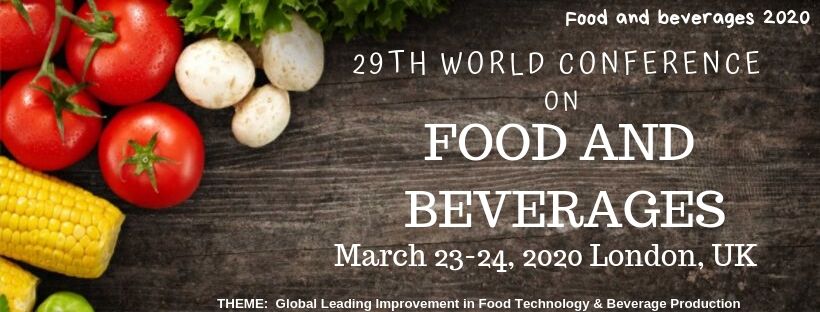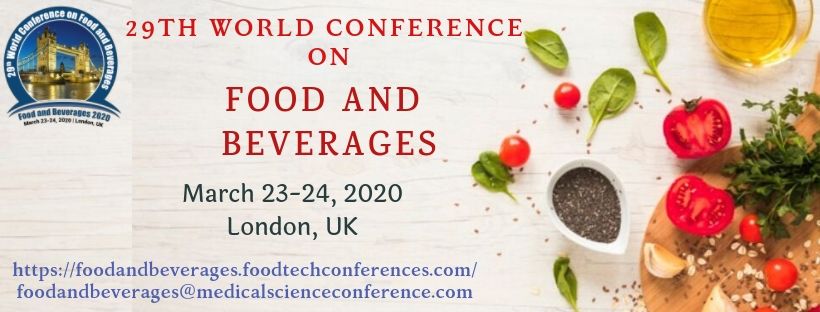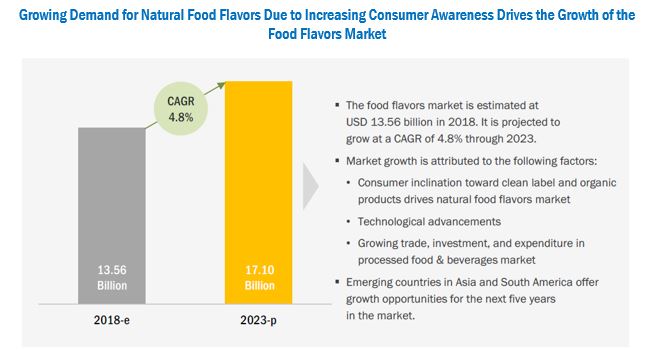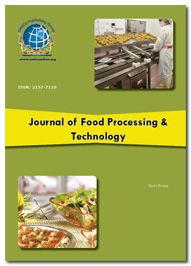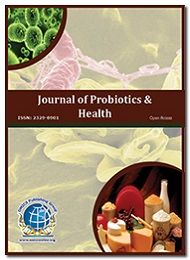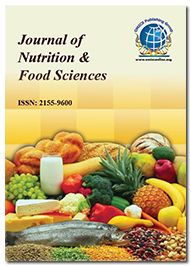Theme: Global Leading Improvement in Food Technology & Beverages Production
Food and Beverages 2019
This will broadly cover the fields of “Food and Beverages” as well as for initiation of new prospects and to explore new tendencies in the field of “Food Technology & Food Science”. This includes keynote presentations, Oral talks, Poster presentations, Video presentation, and Exhibitions.
European Food Conferences is overwhelmed to announce the commencement of “29th World Conference on Food and Beverages" which is going to be held on March 23-24, 2020 London, UK. The conference highlights the theme “Global leading improvement in Food Technology & Beverages Production” aimed to provide an opportunity for the professionals to discuss the technological advancements in the field of Food production and technology. Food & Beverages Conference is designed to provide a platform for Food Technologist, Microbiologist, Food safety officers, Nutritionists, Dietician, Quality control officers, Quality assurance officers, Scientists, Researchers, Biotechnologists, Industrialists, Food Engineers, and Food Professional from Manufacturing, Retail, and Food Service Industry.
Track 1. Bioinformatics in Food Tech
A bio-processed material is intentionally made from substances derived from living organisms. This could incorporate many common materials such as wood and leather, but it typically refers to modern materials that have undergone more extensive processing. A bio-processed material is a material that has been engineered to interact with biological systems for a medical purpose - either a therapeutic or a diagnostic. Material exploited in contact with living tissues, organisms, or microorganisms. Some Examples include:
Keywords: Food Nutrition Conferences | Food Security Conferences | Food Manufacturing Conferences | Food preservation Conferences | Food storage conferences | Food labelling Conferences | Food waste Conferences | Pediatric Nutrition Conferences
Track 3. Dairy and Food Technology
Dairy Technology is a science and Food engineering field that deals with the study of milk processing and its products. It is a part of food technology, production and processing industry that involves processing, packaging, distribution and transportation of various dairy products such as milk and ice-cream by using the science of bacteriology, biochemistry, and nutrition. The field of dairy technology basically uses “technology” to make dairy products nutritious as well as useful.
Keywords: Food Biotechnology Conferences | Nutrition Conferences | Food & Beverages Conferences | Food Chemistry Conferences | Food Microbiology Conferences | Food Engineering Conferences | Food Allergy conferences | Food Infection Conferences
Track 4. Food Fortification
Food fortification or enrichment is the method of adding essential trace elements and vitamins to food. Sometimes it's a purely commercial choice to provide extra nutrients in a food, while some times it is a public health policy which aims to reduce the number of people with dietary deficiencies within a population. Some Examples of fortification in foods:
Keywords: Food Conferences | Food Science Conferences | Food Technology Conferences | Food Production Conferences | Food Processing Conferences | Food Safety Conferences | Food Packaging Conferences | Nutritional Science Conferences | Sensory Analysis Conferences
Track 5. Food Biotechnology
Food technology is a sub discipline of food science that concentrated on the production processes that make foods. Scientific research into food technology deals with food preservation. Food producers can use new biotechnology to produce new products with enhanced desirable nutrient characteristics. These include characteristics such as disease and drought-resistant plants, leaner meat and enhanced nutritional and flavour quality of foods. This technology has also been used to develop life-saving cancer treatment, vaccines, insulin, and other pharmaceuticals to improve quality of life.
Keywords: Food Nutrition Conferences | Food Security Conferences | Food Manufacturing Conferences | Food preservation Conferences | Food storage conferences | Food labelling Conferences | Food waste Conferences | Pediatric Nutrition Conferences
Track 6. Food Grading
Food grading involves the assessment, inspection and sorting of various foods regarding market value, quality, freshness, and legal conformity. Food grading often done by hand, in which foods are assessed and sorted. Machinery is also used to grade foods, and may involve sorting products by size, quality and shape.
Keywords: Food Biotechnology Conferences | Nutrition Conferences | Food & Beverages Conferences | Food Chemistry Conferences | Food Microbiology Conferences | Food Engineering Conferences | Food Allergy conferences | Food Infection Conferences
Food production includes combined processes and infrastructure involved in feeding a population: growing, harvesting, processing, packaging, transporting, marketing, consumption, and disposal of food and food-related items.
Keywords: Food Nutrition Conferences | Food Security Conferences | Food Manufacturing Conferences | Food preservation Conferences | Food storage conferences | Food labelling Conferences | Food waste Conferences | Pediatric Nutrition Conferences
Developing new food, beverages and drink products is a complex process - requiring knowledge of ingredients, packaging materials, processing techniques, legislation and consumer demands and preferences. The difference between product development and research development and is that research and development is the conception phase in the product life cycle, while product development is the entire process of creating, designing, and marketing new products or existing products with new features.
Keywords: Food Nutrition Conferences | Food Security Conferences | Food Manufacturing Conferences | Food preservation Conferences | Food storage conferences | Food labelling Conferences | Food waste Conferences | Pediatric Nutrition Conferences
Track 9. Food Beverages & Microbiology
Food hygiene & safety is a major focus of food microbiology. Numerous agents of disease, pathogens can easily transmitted via food, including bacteria, and viruses. Microbial toxins are also possible contaminants of food. Finally, bacteriophages that only infect bacteria can be used to kill bacterial pathogens. There are simple and fast detection of bacteria, with a use of media containing chromogenic substrate such as Salmon-GAL. Certain enzymes, produced by some particular bacteria, cleave these substrates, resulting in the different coloration of specific bacteria colonies. This allows to clearly seeing the presence of the targeted microorganism, observed as a clearly observable color change. Most chromogenic media is intended for authentic detection of pathogenic bacteria.
Keywords: Food Biotechnology Conferences | Nutrition Conferences | Food & Beverages Conferences | Food Chemistry Conferences | Food Microbiology Conferences | Food Engineering Conferences | Food Allergy conferences | Food Infection Conferences
Food science is the study of food incorporating basic sciences such as biological and physical sciences to study the nature, deterioration and processing of food. Food technology is an area of food science that deals with the production processes that make foods. Early scientific research into food technology concentrated on food preservation.
Food science and technology research Focus and Scope Covers:
Keywords: Food Nutrition Conferences | Food Security Conferences | Food Manufacturing Conferences | Food preservation Conferences | Food storage conferences | Food labelling Conferences | Food waste Conferences | Pediatric Nutrition Conferences
Quality assurance is a set of process for ensuring quality. Quality assurance is a procedure of inhibiting mistakes and defects in manufactured products and avoiding problems when delivering products to food market. The terms "quality assurance" and "quality control" are often used interchangeably to refer to ensuring the quality of a service or product.
Keywords: Food Nutrition Conferences | Food Security Conferences | Food Manufacturing Conferences | Food preservation Conferences | Food storage conferences | Food labelling Conferences | Food waste Conferences | Pediatric Nutrition Conferences
Food engineering is a multidisciplinary field which combines microbiology, applied physical sciences, chemistry, engineering for food and related industries. Food Engineering is the field where the science and engineering are used to process the food, preservation of food and storing of food in order to improve it's quality, texture, taste, smell to add value to the product.
Keywords: Food Biotechnology Conferences | Nutrition Conferences | Food & Beverages Conferences | Food Chemistry Conferences | Food Microbiology Conferences | Food Engineering Conferences | Food Allergy conferences | Food Infection Conferences
Track 13. Food & Beverages Preservation
The term food preservation refers to a number of techniques used to prevent food from spoiling. Food preservation prevents the growth of harmful microorganisms, as well as slowing the oxidation of fats that cause rancidity. Food preservation incorporates processes that inhibit food deterioration, such as the enzymatic browning reaction in apples after they are cut during food preparation. Maintaining or creating nutritional value, texture and flavour is an important aspect of food preservation.
Keywords: Food Nutrition Conferences | Food Security Conferences | Food Manufacturing Conferences | Food preservation Conferences | Food storage conferences | Food labelling Conferences | Food waste Conferences | Pediatric Nutrition Conferences
Food can transmit pathogens which can result in the serious illness or death of the person or other animals. The main sources are bacteria, viruses, mold, and fungus. It can also serve as a growth and reproductive medium for several other hazardous pathogens.
Keywords: Food Nutrition Conferences | Food Security Conferences | Food Manufacturing Conferences | Food preservation Conferences | Food storage conferences | Food labelling Conferences | Food waste Conferences | Pediatric Nutrition Conferences
Food authentication is one of the most important sub discipline in food safety and quality control in every country. Regulatory authorities, food processors, retailers, and consumers are interested in knowing the quality, origin and nutrient value of foods. Food authentication is analytical procedure that validates label information about the food origin and production process.
Keywords: Food Biotechnology Conferences | Nutrition Conferences | Food & Beverages Conferences | Food Chemistry Conferences | Food Microbiology Conferences | Food Engineering Conferences | Food Allergy conferences | Food Infection Conferences
Agricultural technology is specifically about developing new technologies to expand food production. A main focus of agri-tech is reducing the impact of farming on the environment, but it can also increase productivity, profit, or health and safety. Agricultural and food scientists play a crucial role in maintaining and expanding the nation's food supply. Food scientists and technologists use chemistry, biology, and other sciences to study the basic elements of food & beverages. They analyse the nutritional value of food, discover new food sources, and research ways to make processed foods safe and healthy.
Some of the main aspects of agri-tech are:
Keywords: Food Nutrition Conferences | Food Security Conferences | Food Manufacturing Conferences | Food preservation Conferences | Food storage conferences | Food labelling Conferences | Food waste Conferences | Pediatric Nutrition Conferences
Food and Beverages have a vital impact on diet. Eating healthy food maintains good health and reduces the risk of developing certain diseases. A healthy diet incorporates a variety of foods, especially foods with high nutritional quality. Food nourishes the body & mind. In addition to providing nutrients, healthy eating provides us with an opportunity to share with family and friends. Hence, healthy eating is a source of daily pleasure.
Keywords: Food Nutrition Conferences | Food Security Conferences | Food Manufacturing Conferences | Food preservation Conferences | Food storage conferences | Food labelling Conferences | Food waste Conferences | Pediatric Nutrition Conferences
Have you ever walked into a shop and just bought something simply because you found the packaging so attractive?
The utmost function of packaging is preservation and protection from external contamination. This function involves extension of shelf life, retardation of deterioration and maintenance of quality and safety of packaged food. Packaging provide food protection from environmental hazard such as heat, oxygen, light, the presence or absence of moisture, pressure, enzymes, spurious odors, microorganisms, insects, dirt and dust particles, gaseous emissions etc. All of these main cause for deterioration of foods and beverages. Extended shelf life includes preventing of microbial, enzymatic and biochemical reactions through various strategies such as temperature control; moisture control; addition of chemicals such as salt, sugar, natural acids, carbon dioxide, removal of oxygen or a combination of these with effective packaging.
Keywords: Food Biotechnology Conferences | Nutrition Conferences | Food & Beverages Conferences | Food Chemistry Conferences | Food Microbiology Conferences | Food Engineering Conferences | Food Allergy conferences | Food Infection Conferences
By the use of Food technology, Food system has become more accessible than ever before. The whole system includes production and harvesting of agriculture products, transportation and distribution, raw material storage, manufacturing of food, selling the product to the consumers, service and preparation of food at home.
Keywords: Food Nutrition Conferences | Food Security Conferences | Food Manufacturing Conferences | Food preservation Conferences | Food storage conferences | Food labelling Conferences | Food waste Conferences | Pediatric Nutrition Conferences
Developments in food system, food science and food technology have accelerated the production and availability of healthy beverages & nutrient foods. Consumers may acquire health benefits from some products, but they may also suffer adverse health effects and economic losses. Despite medicine, which is administered on the recommendation of health professionals, foods are chosen directly by the consumer. Food labelling has a major role in providing consumers with proper information when choosing the desired products.
Keywords: Food Nutrition Conferences | Food Security Conferences | Food Manufacturing Conferences | Food preservation Conferences | Food storage conferences | Food labelling Conferences | Food waste Conferences | Pediatric Nutrition Conferences
Nanotechnology have emerged with increasing requirement of nanoparticle uses in various fields of food science and food microbiology, including food processing, food packaging, functional food development, food safety, detection of foodborne pathogens, and shelf-life extension of food and beverages products.
There are particular foods listed as containing nanoparticles, including:
Keywords: Food Biotechnology Conferences | Nutrition Conferences | Food & Beverages Conferences | Food Chemistry Conferences | Food Microbiology Conferences | Food Engineering Conferences | Food Allergy conferences | Food Infection Conferences
Track 22.Obesity and Food Beverages
Food technology can contribute in the fight against obesity by providing consumers with an increased variety of tasty, appealing foods that are lower in energy density and portion size than standard products.
Keywords: Food Nutrition Conferences | Food Security Conferences | Food Manufacturing Conferences | Food preservation Conferences | Food storage conferences | Food labelling Conferences | Food waste Conferences | Pediatric Nutrition Conferences
Poultry is a major source for human consumable animal protein. Poultry is the skeletal muscles of various birds and is a good source of protein, fat, and vitamins and minerals in the diet.
Keywords: Food Nutrition Conferences | Food Security Conferences | Food Manufacturing Conferences | Food preservation Conferences | Food storage conferences | Food labelling Conferences | Food waste Conferences | Pediatric Nutrition Conferences
Food processing incorporates the processes and techniques used to transform raw ingredients into human consumable food. Food processing takes harvested, clean, or slaughtered substances and uses them to produce marketable food products. There are various different ways in which food can be produced.
Keywords: Food Biotechnology Conferences | Nutrition Conferences | Food & Beverages Conferences | Food Chemistry Conferences | Food Microbiology Conferences | Food Engineering Conferences | Food Allergy conferences | Food Infection Conferences
The food flavours market was valued at USD 12.94 billion in 2017; it is projected to grow at a CAGR of 4.8%, to reach USD 17.10 billion by 2023. The basic aim of the report is to segment, define, and project the global market size for food & beverages flavours on the basis of application, type, form, origin, and region. Other objectives include analysing the opportunities in the market for stakeholders and providing a competitive landscape of market trends, analysing the macro and microeconomic indicators of this market to provide factor analysis, and to project the growth rate of the food & beverages flavours market.
The key players that are profiled in the report include Givaudan (Switzerland), International Flavors & Fragrances (US), Firmenich (Switzerland), Symrise (Germany), Frutarom (Israel), Sensient (US), MANE (France), Takasago (Japan), T.Hasegawa (Japan), and Robertet (France).
This report is targeted at the existing players in the industry, which include the following:
- Research organizations
- Food flavor manufacturers, suppliers, distributors, and retailers
- Food & beverage producers, suppliers, distributors, and retailers
- Flavor extraction equipment manufacturers, traders, distributors, and dealers
The study reveals several questions for stakeholders, which market segments to focus on in the next two to five years for prioritizing efforts and investments.
A Glance at Market of Nutrition and Food:
Throughout the last ten to fifteen years, deals in the worldwide Nutrition supplements market have seen a phenomenal spike. This has empowered various new players to venture into the business sector with items that guarantee to be the remedy for youth, wellbeing, and essentialness. As indicated by the appraisals of the Nutrition Business Journal report, the worldwide Nutrition and supplements market remained at US$96 billion starting 2012. After a year, it was around US$104 billion all inclusive.
The global nutrition supplements market size was valued at USD 133.1 billion in 2016 and is expected to accelerate at a CAGR of 9.6% from 2016 to 2024. This impact is due to the rising awareness towards weight management among working professionals because of extensive brand campaigns by nutritional product manufacturers.
Nutritional supplements are majorly consumed with an intention to enhance the intake of essential nutritional elements in the human body. Increased cardiovascular disorders among the populations because of fluctuating diet patterns and inactive lifestyle among the age-group of 30-40 are expected to promote the importance of nutraceuticals.
Nutritional Supplement Companies:
Abbott Laboratories
AdvoCare International
Alpharma Inc.
Atkins Nutritionals Inc.
Balchem Corporation
Bioplex Nutrition Inc.
Century Foods International
Chef Jay's Food Products
DSM Nutritional Products
DuPont
Elan Nutrition – ConAgra
Food Sciences Corporation
Lyoferm
Martek Biosciences Corporation
NBTY
Nutramax Products
Nutrilite
Major Food Associations and Societies Worldwide:
Association Zoonotic Food borne Pathogens
International Association Engineering & Food
International Association Food Protection
International Food & Agribusiness Management Association
Korean Society Food Science & Technology
American Association Nutritional Consultants
American Nutrition Association
Association Coordination & Research in Obesity & Nutrition
Association Nutrition Departments & Programs (ANDP)
Belgium Association Nutritionists & Dieticians
British Association Nutritional Therapists (BANT)
Commonwealth Association paediatric Gastroenterology & Nutrition (CAPGAN)
Diet & Nutrition Association
European Association Gastroenterology, Endoscopy & Nutrition
European Society Clinical Nutrition & Metabolism
European Society Paediatric Gastroenterology, Herpetology & Nutrition
Federation African Nutrition Societies
Federation Asian Nutrition Societies
List of Food Associations/Societies
• Federal Ministry of Food, Agriculture and Consumer Protection, Germany
• ISEKI Food Association, Austria
• Institute of Food Research, U.K
• Association of Food Science and Technology of Basque Country, Spain
• Belgian Association of Food Technology, Belgium
• Central Food Research Institute, India
• Centre for Advanced Food Studies, Denmark
• Czech Committee for Food Science and Technology, Czech Republic
• Food research Institute Albania, Albania
• German Federation of Food Science and Technology, Germany
• National Institute for Agriculture Research in Tunis, Tunisia
• Spanish Council for Scientific Research, Spain
• The Institute of Food Science and Technology of Ireland, Ireland
• Department for Environment, Food and Rural Affairs, U.K
• European Food Safety Authority, EU, Italy
• Food Standards Agency, U.K
List of Companies
• Cargill, USA
• Nestle, India
• Archer Daniels Midland, USA
• PepsiCo Inc., USA
• Kraft Foods Inc., USA
• The Coca-Cola Company, USA
• Anheuser-Busch InBev, Belgium
• Tyson Foods Inc., USA
• Unilever Plc/Unilever NV, U.K
• Mars Inc., USA
• SABMiller Plc, U.K
• Kirin Brewery Company Ltd, Japan
• Heineken N.V., The Netherlands
• Lactalis, France
• Asahi Breweries Ltd., Japan
• Associated British Food, U.K
• Diageo Plc, U.K
• Fonterra, New Zealand
• General Mills Inc., USA
• Kellogg Company, USA
• FrieslandCampina NV, The Netherlands
• Vion, The Netherlands
Target Audience:
Dieticians, Nutritionists, Clinical nutritionists, Probiotics researchers, Nutrigenetics and Nutrigenomics researchers, Public Health Professionals, scholars and students working in the field of Clinical Nutrition, Food Science and Public Health. From Industrial sector, delegates and physicians are expected to attend the event.
Nutrition Related Societies and Associations in Asia:
Nutrition Society / Österreichische Gesellschaft für Ernährung (ÖEG)
Bulgarian Scientific Society for Nutrition and Dietetics
Belgian Nutrition Society
Czech Society of Nutrition
Selskabet for Ernæringsforskning (SfE)
Finnish Society for Nutrition Research
French Society for Nutrition / Société Française de Nutrition (SfN)
National Association of Nutritionist of Georgia
German Nutrition Society / Deutsche Gesellschaft für Ernährung (DGE e.V.)
Greek Society of Nutrition and Foods
Hunganrian Nutrition Society / Magyar Táplálkozástudományi Társaság (MTT)
Unit for Nutrition Research
Italian Society of Human Nutrition (SINU)
Norwegian Society for Nutrition / Norsk Selskap for Ernæring (NSE)
Polish Society of Nutritional Sciences
Romanian Nutrition Society / Societatea de Nutritie din Romania
Serbian Nutrition Society
Spanish Nutrition Society / Sociedad Española de Nutrición (SEÑ)
Swedish Society for Clinical Nutrition (SFKN)
Swiss Society for Nutrition / Schweizerische Gesellschaft für Ernährung (SGE)
Dutch Academy of Nutritional Sciences
The Nutrition Society
Worldwide Nutrition Related Societies and Associations:
International Confederation of Dietetic Associations
European Society Clinical Nutrition & Metabolism
Diet & Nutrition Association
World Health Organization
Federation African Nutrition Societies
International Association Engineering & Food
British Association of Nutritional Therapists
This is the finest opportunity to interact with participants from the Food & Beverages associations, Food Biotechnology Associations, Food Microbiology Societies, and Food Science Academicians. It mainly concerns on the modern impact and technologies in Food & Beverages and other relevant to Food, Beverages & Nutritional Sciences, as well as for initiation of new assessments and technologies and the effectiveness of various regulatory programs on Food & Beverages 2019 conducts presentations, share knowledge, meet with present potential and eminent scientists, and receive name recognition at this two days event.
Our aim is to aggregate community and to create a platform for exchange of information on technological developments, new scientific innovations and the effectiveness of various regulatory programs towards food & Beverages 2019. It provides a premier technical forum for expressing and knowledge about the advanced research and developments, as well as exploration of new applications, technologies and to explore new trends in the field of food & Beverages Science & Food Technology.
Food & Beverages Conference in 2019 in London, UK organize Food Meetings in the fields related to it like Food Microbiology, Food & Beverages Sampling and Nutritional Science, Food Science, Food Technology.
Target Audience
- Microbiologists
- Food technicians
- Academicians
- Researchers
- Students (Post graduates, Doctorates)
- Food industries
- Private sectors
- Food Microbiology Societies
- Food Microbiology Associations
- Individuals involved in Food Microbiology, Biotechnology ,Nanotechnology and Food related matters
Conference Highlights
- Food Biotechnology
- Innovation in Food packaging
- Food Grading
- Food & Beverages Production
- Scope & Importance of food processing
- Poultry Processing and Products
- Food Product Development
- Dairy and Food Technology
- Food Beverages & Microbiology
- Importance of Food Technology
- Negative Effects of Food Technologies
- Food science and technology research
- Food Nutrition & Quality Assurance
- Food Engineering
- Bio-processed Food & Beverages
- Food & Beverages Preservation
- Food Hygiene & Sanitation
- Food Authentication
- Nanotechnology in the Food Industry
- Food Technology in Agriculture
- Bioinformatics in Food Tech
- Obesity and Food Beverages
- Food Fortification
- Food, Beverages & Dietary Supplements
To share your views and research, please click here to register for the Conference.
To Collaborate Scientific Professionals around the World
| Conference Date | March 23-24, 2019 | ||
| Sponsors & Exhibitors |
|
||
| Speaker Opportunity Closed | |||
| Poster Opportunity Closed | Click Here to View | ||
Useful Links
Special Issues
All accepted abstracts will be published in respective Our International Journals.
- Journal of Food Processing & Technology
- Research & Reviews: Journal of Food and Dairy Technology
- Journal of Food & Nutritional Disorders
Abstracts will be provided with Digital Object Identifier by


